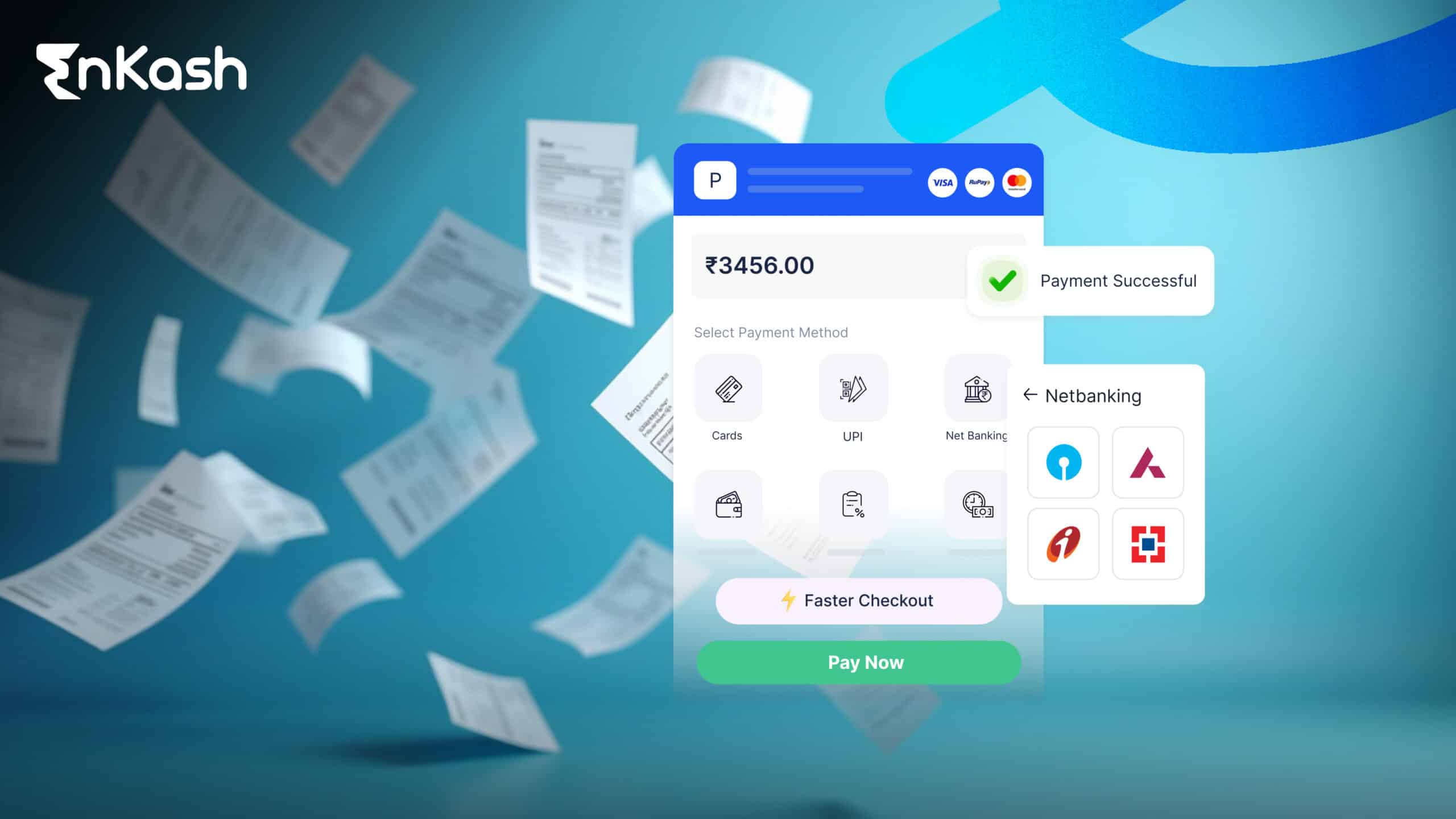With digital commerce in a fast-paced environment, the choice of payment gateway is very important for smooth transactions, customer satisfaction and secure online payments. Businesses can decide between the two most widely available options, hosted and integrated payment gateways. Both are very different regarding their features, benefits, and challenges according to business requirements and technical capabilities.
We will dive deep into this comparison between hosted and integrated payment gateways, what they mean, how they function, benefits, limitations, and what businesses should look for when deciding between them.
What is a Payment Gateway?
A payment gateway is a system by which businesses can accept customer payments through credit cards, debit cards, or another electronic payment method. To facilitate fast and frictionless transactions, payment gateways will pass along sensitive payment information through an intermediary between the company’s website and the acquiring bank. They are necessary for online businesses.
Types of Payment Gateways
There are three types of payment gateways:
- Hosted Payment Gateways: Payments are taken to the customer’s payment provider’s platform. PayPal and Stripe Checkout are some examples.
- Integrated Payment Gateways: All the payments are processed on the business’s website or app, so customers do not have to leave the website. Examples include Authorize.Net and Square.
- API-Hosted Payment Gateways: Compared to integrated gateways, this gateway type is built on APIs that allow payment directly on the business’s site without routing.
Hosted Payment Gateway
A hosted payment gateway redirects consumers from the company’s website to the payment provider’s site, where transactions are taken. : After the payment, the customer is redirected to the business’s website with the transaction status.
How It Works
- Order Start: Customer buys items and checkouts from the business’ website.
- Return: Customer redirected to the secured website of the hosted gateway.
- Payment Acceptance: Payment information is entered and encrypted for authorization.
- Transaction Verification: Payment is processed, the payment is emailed to the customer, and the customer gets redirected to the business website.
- Settlement: After authorization, the funds are deposited from the customer account to the business account.
Advantages
These are some of the most popular advantages:
- Security and Compliance: Hosted Payment Gateways hold sensitive data and conform to regulations such as PCI DSS, so the merchant doesn’t have to worry about security issues.
- Integration Easy: Simple to set up with minimal technical knowledge. Businesses can add these gateways easily via plugins or redirects – so no time is spent developing them.
- Efficiency: Lowers infrastructure and compliance costs. These savings are hugely appropriate for small and startup businesses.
- International Expansion: Available for different currencies and payment options, which allows you to transfer money across borders. Hosted gateways make it easier for enterprises to serve the international customer base.
- Fraud Protection: Automatic fraud detection and risk control functions are built-in. Many hosted gateways contain fraud detection tools, like velocity checks and geolocation.
- Less Maintenance: By outsourcing payment processing, companies do not have to worry about maintaining or updating the payment system.
Read more: Financial accounting
Challenges and Disadvantages
Hosted payment gateways can be a good solution for many companies, but it is not without its drawbacks:
- Customer Experience: When you redirect your customers to a third-party site, it might slow down checkout. This break can lead to cart abandonment, especially when the redirection is slow, or customers don’t trust the third-party platform.
- Branding Limitations: Companies do not have a lot of flexibility on the appearance and styling of the payment page. Some providers support small tweaks, but the payment page is usually branded with the gateway, not the company.
- Third-Party Dependency: Organizations need the uptime and performance of the hosted gateway. Any gateway-related technical malfunctions or maintenance downtime directly affects the business’s transaction flow.
- Monthly Charges: Transaction fees, monthly charges, and setup costs are generally charged for hosted payment gateways. These charges can quickly add up in big-volume companies.
Security Options of Hosted Payment Gateways
For security reasons, businesses use hosted payment gateways that are the most appealing. Key security features include:
- PCI DSS Compliant: Hosted gateways comply with Payment Card Industry Data Security Standards; therefore, all payments are conducted securely.
- Encryption: Data between the customer, gateway and acquiring bank is encrypted. It keeps private, important data safe from prying eyes.
- Monthly security audits: Enterprise-class hosted payment gateways undergo regular security audits to detect and fix vulnerabilities and stay ahead of security standards.
- Payment sensitive data tokenization: Secure payment sensitive data is based on special tokens.
- Fraud Detection Tools: Several hosted gateways have built-in fraud detection technologies like address verification systems (AVS) and CVV checks.
Customization Options
Although it’s not very customizable, a few hosted payment gateways provide:
- Editable Logo and Colors: Companies can include their logo and brand colours to make the experience more seamless.
- Multi-language Support: Hosted gateways often come in multiple languages, which is helpful for customers abroad.
- Mobile Optimizing: There are many hosted gateways that make their payment page responsive and mobile optimized.
Use Cases for Hosted Payment Gateways
Hosted payment gateways are great for:
- Small & Medium Enterprises (SMEs): This is for companies that do not have much cost to set up and require minimal technical work.
- Startups: Startups that need a quick start can build in a hosted payment gateway with minimum investment.
- International e-commerce: International businesses can make use of hosted gateways’ multi-currency and multi-payment options.
- Nonprofits: Organizations that want to take safe and easy donations use hosted payment gateways.
When businesses know the ins and outs of hosted payment gateways, they can decide if it’s the right solution for them and what customers want from it. Hosted gateways are the most affordable, secure, and efficient option to settle online payments without the technical and regulatory complexity of payment clearing.
Read more: Cost accounting and financial accounting
Integrated Payment Gateway
The payment gateway can be plugged into your website or app to make payments easy for the company. Payment details are processed on the company’s website and sent to the gateway for execution.
How It Works?
- Create Checkout: Buyers add the items to cart and checkout.
- Payment Invoicing: Payment information is entered on the business page.
- Transfer: The data encrypted is sent to the in-built gateway for processing.
- Payment Authorization: The gateway connects to the acquiring bank to approve the payment.
- Settlement: Paid invoices are credited to the business’s account.
Advantages
Some of the advantages of integrated payment gateways are:
- Fast and seamless transaction: Customers close the transaction without exiting the website of the company, thus increasing customer retention and satisfaction.
- Customization: Brands own the look of the checkout entirely and they are guaranteed to incorporate their brand.
- Reusability: Accepts different payment methods and configurable functionality.
- Effective Data Management: These integrated solutions usually come with reporting and analytics features, which give businesses an insight into transaction patterns and customer behaviour.
Disadvantages
Negatives of integrated payment gateways can include:
- Higher Price: Large development and maintenance costs upfront. The infrastructure required for payment processing is also pricier.
- Technical Skills: Companies need a team of developers to set up and support the system, which complicates operations.
- Security Obligation: Security compliance with PCI DSS and the protection of sensitive payment data fall on the shoulders of the business.
- Technical Integration: Implementing legacy applications and payment infrastructure can be technically challenging and time-consuming.
Security for Integrated Payment Gateways
Security features of Integrated Payment Gateways are:
- Tokenization: In order to prevent any breaches of the customer payment details, individual customer payment details are digitalized with tokens.
- Secure Sockets Layer (SSL): Secure communication from browser to company website.
- 3D Secure Protocol: Provides an additional level of customer authentication during checkout.
- Fraud Monitoring: Effective fraud monitoring systems monitor transaction data and alert you to suspicious activity.
Use Cases for Integration Payment Gateways
Integrations payment gateways give businesses the greatest flexibility and control over payments. They also take more time and effort to develop, but the customer experience is far more compelling if the business can afford the technical expertise to maintain.
- Large Companies: Great for companies with large transactions and high elasticity to integrate complex processes.
- Luxury Brands: Organizations looking for maximum customization to mirror their brand and build customer confidence.
- Marketplaces: Marketplaces with many sellers can combine payment gateways to streamline transactions and payments.
Read more: Expense management
Hosted Payment Gateway vs. Integrated Payment Gateway
Function |
Hosted Payment Gateway |
Built-in Payment Gateway |
Installation |
Quick installation, very low technical knowledge |
Required high-level technical expertise and development time |
Customer Experience |
Customers are taken to an external site, which may disrupt the experience |
Transactions happen in-store, creating a seamless and seamless experience |
Personalization |
Limited branding and customization options |
Total design and feature management |
Security |
Provided by the payment provider; lighter PCI DSS implementation burden |
Businesses need to store and protect sensitive information |
Cost |
Lower initial outlay but higher up-front fees |
Higher initial expenditure but fixed long-term cost Variable |
International Integrity |
Available in several currencies and payment methods |
Customization for international payments |
Scalability |
Simple to scale; the service agent handles higher volumes of transactions |
Scalability is dependent on the infrastructure of the business |
Dependency |
Depends on the provider for availability and performance |
Works without third-party services |
Tips for Selecting a Payment Gateway: What to Look For?
Which is the right one for your company, what are your technical capacities, and what is your customer experience? By comparing each alternative, organizations can decide which suits their business requirements and future growth. Some points to consider before you decide on a payment gateway are:
Business Size and Goals
- Startups/Small Business: Hosted payment gateways are perfect for startups and small businesses as they are easy and affordable.
- Large Businesses: Integrated gateways are best for companies that handle many transactions and desire an optimal customer experience.
Technical Expertise
Hosted services do not require much development work, and integrated gateways require technical know-how.
Customer Experience
When a brand and frictionless buying are on the cards, integrated gateways have more control over the user experience.
Security and Compliance
Hosted gateways take compliance off businesses’ shoulders, while integrated gateways have businesses responsible for compliance with PCI DSS.
Budget
Hosted gateways are more affordable initially, but their monthly costs are very high. Integrated gateways are an investment, but could save big in the long run.
Scalability
Hosted gateways are easily expandable for a company. In-house solutions can need infrastructure to accommodate higher volumes of transactions.
Read more: Non operating expense
Use Cases of Hosted Payment Gateways
Hosted payment gateways work best for:
- Micro, Small and Medium-sized Businesses (SMEs): Companies that do not have the technical know-how or capacity for a complex integration.
- Startups: Startups that want to accept online payments quickly and cheaply.
- International Businesses: Organizations with multiple currencies and payment processes for which the gateway international support will make things easier.
- Seasonal Highs: Businesses need to handle seasonal peak transaction rates with scalable payment systems.
Featured Use Cases for Integrated Payment Gateways
Integrations are great for:
- Large Companies: Organizations with large amounts of business who are able to have full control over the checkout process.
- E-Commerce stores: Retailers offering seamless and standardized purchasing processes.
- Subscriber Businesses: Business that demands monthly bills and powerful analytics.
- Branded and User Experience Companies: Branded and user experience focused companies.
Conclusion
Hosted and integrated payment gateways are different and work for different businesses. Hosted payment gateways are simple, secure and fast to set up, especially for SMBs. Integrated payment gateways, on the other hand, are easy to use and highly configurable and are most recommended for big enterprises with heavy technical departments.
To ensure your business is a success, it’s crucial to look at your business’s existing and future payment processing needs, technical resources, etc. Ultimately, whether you go with a hosted or an integrated gateway, the bottom line is that your customer needs a secure, seamless and automated payment process.
Read more: Cost control
FAQs
What are the key differences between a white-label payment gateway and an integrated payment gateway?
A white-label payment gateway is a pay-out solution you can build on your own or on third-party infrastructure. On the other hand, a built-in payment gateway works to embed payment processing into the company’s site or application. The former is great for resellers or payment companies, while the latter is focused on fast checkouts.
When will payment gateways handle refunds/chargebacks?
Payment gateways allow for refund triggers in their dashboard or API. They also assist with chargeback management, which is linked with issuing banks to settle dispute payments. Hosted gateways might not allow businesses to customize refund workflows or integrated gateways.
Are hosted and integrated payment gateways going to accept crypto payments?
Crypto payments are accepted by some of the payment processors but it is up to the service provider. Accepting Cryptos should inquire with their host or integration gateway to see if it provides crypto wallets and blockchain integrations.
Do you have hybrid hosting and integrated payment gateways?
Yes, there are hybrid solutions that provide the scalability of a standalone gateway and turn data security off to a hosted platform. Such configurations allow businesses to retain branding and have lower security compliance costs.
How much will different payment gateways cost for different transaction amounts?
Hosted gateways and integrated gateways cost various setup, transaction and maintenance fees. Hosted gateways can be cheaper for low transaction volumes, whereas integrated gateways can be cheaper for high transaction volume companies as transaction fees are lower.
What is the technical support for payment gateway companies?
The level of technical support differs a great deal from provider to provider. Hosted gateways generally come with easy-to-understand interfaces and large documentation, so people without technical expertise can use them. Integration gateways may require additional API integration support. Some vendors provide developer toolkits and account managers.
Multi-lingual support on hosted and integrated payment gateways?
Hosted gateways are generally pre-configured with multi-language support so businesses can serve international users without needing to work on it. Incorporated gateways can also need to provide custom language binding for the payment interface based on platform APIs.
What’s AI and Machine Learning Among Payment Gateways Today?
Most payment gateways are now equipped with AI/ML fraud prevention, monitoring the transactions, location, and user behavior to flag fraudulent activities. These technologies are being integrated into hosted and integrated payment gateways as standard functionality.













